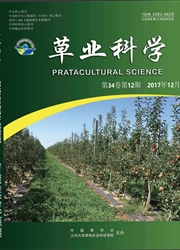

 中文摘要:
中文摘要:
气候变化是多因子的综合体,常相伴发生,其对地球上各生态系统中的植物、动物、微生物等均有不同程度的影响。克隆植物,是一类兼具有性和无性两种繁殖方式的植物,由于其长期以来对环境的适应,很多克隆植物已放弃或较少地进行有性繁殖,导致其无性繁殖能力在某种程度上可以直接反映地上生产力,所以克隆植物无性繁殖如何响应气候变化成为当前重要的课题。因此,本文从气候变化的几个主要因子出发,综述其对多年生克隆植物无性繁殖的影响,结果发现,绝大部分文献指出C02升高和氮沉降均促进子株的输出,而降水量的减少抑制或不影响子株的输出,此外,增温时间不同对子株的影响也有很大差异。到目前为止,虽然气候变化中各因子对克隆植物无性繁殖的研究已有大量报道,但关于它们之间交互作用的研究较少。而且可能由于地下取样困难等原因,针对CO2浓度升高、增温、氮沉降等气候变化对地下芽库影响的文献则更少。所以应加强各气候因子之间的交互作用对克隆植物影响的研究工作,因为它不仅可以进一步丰富克隆植物生态学与全球变化生态学的交叉研究内容,而且可以为未来草地管理提供一定的实践依据。
 英文摘要:
英文摘要:
Climate change consists of many simultaneous factors which have different influences on plants, ani- mals and microbes in various ecosystems. Clonal plants have two different modes of reproduction, sexual repro- duction and vegetative propagation. Many clonal plants have abandoned or nearly abandoned sexual reproduc- tion, owing to environmental adaptation. To some extent, their vegetative propagation ability might represent the total productivity of these plants. Therefore, the response of clonal plant propagation to climate change has becomea crucial issue. In this paper, we review the effects of the main climatic factors on clonal growth of a pe- rennial plant. Both elevated C02 and nitrogen deposition increased the output Of daughter shoots in most pa- pers, but decreasing precipitation had adverse or noeffect. Warming time had different effects on daughtershoots. Although there is a lot of research about the effects of eachclimate change factor on clonal plants, stud- ies showing howthe interaction of these factors affectsclonal plant propagation arescarce.To strengthen the body of research, studies about how interaction among the climatic factors affectsclonal plants areessential, because theynot only enrich knowledge of clonal plant and global change ecology, but also provide practical guidance for grassland management in the future.
 同期刊论文项目
同期刊论文项目
 同项目期刊论文
同项目期刊论文
 期刊信息
期刊信息
